Sex Reassignment Surgery (Male to Female) in Tunis
Search and Compare the Best Clinics and Doctors at the Lowest Prices for Sex Reassignment Surgery (Male to Female) in Tunis
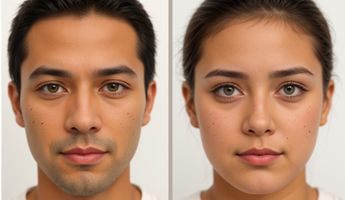
Find the best clinics for Sex Reassignment Surgery (Male to Female) in Tunis
No pricing info available
Thailand offers the best prices Worldwide
Price: $ 2,473
From 37 verified reviews
Saoussen Saidani, 13 June 2020
My 12 year old daughter Lina has had surgery Pancreas tumorHeavy Operation which went very wellI thank all the staff of the Pasteur clinic for their hospitality and their hygiene ...I thank the doctors who attended the operation and in particular the surgeonAYADI Sofiene who accompanied us from the start for his professionalism as well as DR Walid Miraoui. The discovery of this tumor is done in a very short time a week to manage allThe support of Surgeon Ayadi Sofiene was really perfect as a parent we were reassured and above all in confidence.And especially I thank them for the moral support of My Daughter Lina who kept the smile until the end and who It is found in Total confidenceThank you so much for saving our childMr er Mrs Saidani
Clinic Apollon, located in Boulevard Mohamed Bouazizi, Tunis, Tunisia offers patients Sex Reassignment Surgery (Male to Female) procedures among its total of 90 available procedures, across 1 different specialties. Currently, there's no pricing information for Sex Reassignment Surgery (Male to Female) procedures at Clinic Apollon, as all prices are available on request only. All procedures and treatments are undertaken by just a small team of specialists, with 2 in total at the Clinic, and they are not accredited by any recognized accreditations institutes
Compare Before & After Photos of _procedure_photos.phpSex Reassignment Surgery (Male to Female)


Front view


Front view


Front view


Front view


Front view


Front view

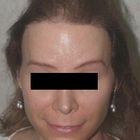
Front view
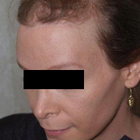

Half-side view
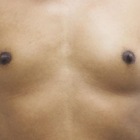

Front view


Half-side view
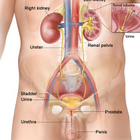
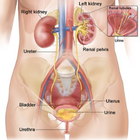
Front view
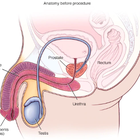
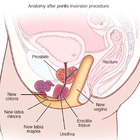
Full-side view
WHY US?
At Medijump, we're making medical easy. You can search, compare, discuss, and book your medical all in one place. We open the door to the best medical providers worldwide, saving you time and energy along the way, and it's all for FREE, no hidden fees, and no price markups guaranteed. So what are you waiting for?

Free

Best Price

Widest Selection

Risk-Free
What you need to know about Sex Reassignment Surgery (Male to Female) in Tunis

Also known as Gender Reassignment or Sex Change Surgery, Sex Reassignment Surgery (SRS) involves the surgical procedures required to change a person’s sexual characteristics from one gender to the other. The procedure can be used to transition a person from Male to Female and from Female to Male. Male to Female procedure involves reshaping of male genitals to appear and function as female genitalia (including a vaginoplasty), hair removal therapy, hormone replacement, facial feminization surgery, and Breast Augmentation.
Hormone treatment is started one year prior to surgery and continues after, where estrogen helps to reshape the body’s contours and stimulates the growth of labia majora. At least one therapist will be required to assess a patient’s psychological wellbeing before the go-ahead can be given.
The decision to have a breast augmentation should be an informed one that takes into account the potential risks and side effects. You should also have realistic expectations about the results of breast implant surgery to avoid disappointment. Find out about the procedure, the recovery period and any possible complications - ask your doctor or surgeon if you are unsure about anything.
What is the cost of Sex Reassignment Surgery (Male to Female) in Tunis?
One of the most common inquiries about the Sex Reassignment Surgery (Male to Female) pertains to its expense. The financial burden associated with the procedure may significantly impact one's decision to pursue it. Nonetheless, it's not easy to pinpoint the exact cost, given that numerous factors can influence it. In Tunis, the total cost of the procedure may fluctuate considerably based on factors like surgeon qualification, the intricacy of the operation, and the span of hospitalization, to name a few.
It's vital to acknowledge that the Sex Reassignment Surgery (Male to Female) is not a one-off event, but entails a succession of treatments and surgeries. Typically, it includes mental health sessions, hormone treatments, and several surgical procedures, all of which add to the general cost. Expenses post-surgery, such as medication, check-up appointments, possible extra surgeries, and supplementary therapies, also require consideration. Furthermore, expenses for travel and lodging in Tunis should be taken into account. For a precise cost approximation, reach out directly to the clinic.
What does a Sex Reassignment Surgery (Male to Female) Procedure Involve?
Clinically speaking, sex change operation is known as “Genitoplasty Procedure”. This type of procedure can be performed to transition an individual from female to male and from male to female.
It is very important to understand that before you undergo surgery, you will need to first transition. Gender transition is a lengthy process that requires a lot of patience and resilience. In addition, it will be of great help if you have a strong support system to back you up in times of difficulty. It’s also essential that you have a therapist to not just help you with your emotional wellbeing before and after the transition, you will also need a letter of recommendation from your therapist before your surgery.
Transitioning from male to female will involve penectomy (removal of the penis), orchiectomy (removal of testes), vaginoplasty (creation of a vagina), and feminizing genitoplasty (creation of female genitalia). During the surgery, you will be induced with a general anesthetic.
You must start hormone treatment a year prior to your surgery to help reshape your body contours and stimulate the growth of your labia majora. Hormone treatment will be continued even after your sex-change operation.
There are popular MTF sex reassignment surgery techniques which you can choose from, two of which are: sex reassignment surgery with skin graft technique - the most popular SRS procedure, vaginal depth is up to 13-15cm (5-6 in). Another is sex reassignment surgery with colon graft - suitable for people with less scrotal skin and those who prefer a lubricated vagina and is considered as the most expensive procedure.
There are other procedures that you can undergo to fully transition from male to female. These may include; breast implants, facial feminization surgery (FFS), and another procedure would be to minimize the appearance of your Adam’s apple, etc. All procedures to help one fully transition will vary on the individual’s need and of course, their budget.
Prerequisites to Surgery
- Patients must be at least 20 years old or have consent from parents / legal guardians for those between 18 and 20.
- At least 12 months of successful and continuous real-life experience living as a woman.
- At least 12 months of continuous hormonal therapy.
- Must consult with a psychiatrist in the home country and in the country where the procedure will be performed (this can be arranged in your chosen hospital in Tunis).
- Physically fit for surgery.
Popular MTF Sex Reassignment Surgery (SRS) Techniques
1. SRS with Penile Skin Inversion
- Suitable for patients who do not want a vagina for sexual intercourse, particularly popular with elderly trans people. Depth is around 2-4 cm (1-2 in) and penile hair removal is required prior to surgery.
- Surgery: 2.5 hours
- Hospitalization: 4 nights
- Recovery time in Tunis: 3-4 weeks
2. SRS with Scrotal Skin Graft
- Scrotal skin is used to create a vaginal depth of up to 13-15 cm (5-6 in), depending on skin quality and quantity (additional depth is possible by using groin skin). This is the most popular SRS procedure.
- Surgery: 4 hours
- Hospitalization: 6 nights
- Recovery time in Tunis: 3-4 weeks
3. SRS with Sigmoid Colon by Laparoscopic Technique
- The Sigmoid colon is used to create the vagina, allowing for greater depth than what is possible with SRS with a scrotal skin graft. More suited to those with less scrotal skin or those who prefer to have a lubricated vagina, like that of a biological woman. By far the most expensive technique.
- Surgery: 6 hours
- Hospitalization: 7 nights
- Recovery time in Tunis: 3-4 weeks
How Long Should I Stay in Tunis for a Sex Reassignment Surgery (Male to Female) Procedure?
A lot of patients prefer having surgery overseas since it is far less expensive and most countries, like Tunis, have a very high success rate in terms of plastic surgery and gender reassignment surgery.
Recovery after surgery will be a long and painful process. It will also require several follow up procedures as well as constant monitoring so you will have to stay a little bit longer at the hospital until you are ready to be discharged. Generally, allow for a minimum of 3 weeks stay in Tunis after your surgery, this will allow for the removal of stitches and a few weeks of follow up visits with the surgeon.
What's the Recovery Time for Sex Reassignment Surgery (Male to Female) Procedures in Tunis?
Smoking before and after the surgery is highly discouraged and avoid smoking for at least two weeks to reduce risks of non-healing.
Most people are able to return to work in about 4-6 weeks after a sex change operation. Furthermore, you can resume strenuous work and exercise after 2 months. It is vital that you strictly follow all medication instructions during your recovery period.
Keep in mind, recuperation incorporates not only physical healing but also emotional rejuvenation. The Sex Reassignment Surgery (Male to Female) implies a noteworthy modification in your way of living and acclimating to an altered body image and social identification requires patience. Mental health guidance proves to be an important element in the healing journey, offering emotional assistance and managing any mental obstacles that come up.
What sort of Aftercare is Required for Sex Reassignment Surgery (Male to Female) Procedures in Tunis?
Social support is very important before and after the surgery, especially the support that comes from your family and loved ones. You have to be socially and emotionally stable before you undergo the operation. This is why it is required that you have proper counseling to help you with your emotional wellbeing. You have to prepare yourself mentally, before, during and after transition because it can be quite overwhelming and stressful.
It is also important that you maintain a regular check-up with your local doctor to monitor the progress of your healing and avoid complications.
What's the Success Rate of Sex Reassignment Surgery (Male to Female) Procedures in Tunis?
The success rate for a sex change is very high nowadays, given technological advancements and the greater experience of surgeons. Gender reassignment surgery from male to female has a higher success rate than female to male; this is why more male transgender people opt for a sex change.
However, given the nature and complexities of this type of surgery, you also have to be aware of its complications, for example, there is always a possible risk of infection, severe pain, given the intrusive nature of the surgeries and the potential for blood clotting and scarring.
Possible side effects may also include a decreased sexual sensation and ability to orgasm, fistula (opening between rectum and vagina), narrowing of vagina and hair growth in the vagina from the grafted tissue and the partial death of tissue used to create the new vagina.
Are there Alternatives to Sex Reassignment Surgery (Male to Female) Procedures in Tunis?
There is no alternative to a sex-change operation for those who want to fully transition their body to match their gender identity. Undergoing gender reassignment surgery will require a lot of time, energy, patience, and of course money. A vast majority of people who experience gender dysphoria never really surgically alter their appearance. Instead, they use creams and hormonal pills to alter their bodily appearance. Estrogens (female hormones) will help develop the breast, widen the hips, help lose facial hair and slightly increase voice pitch.
What Should You Expect Before and After the Procedure
Prior to even undergoing the Sex Reassignment Surgery (Male to Female), those considering this option should be aware that their health care provider will necessitate a thorough evaluation phase. This is implemented to ascertain that the individual is thoroughly prepared, both physically and mentally, for the major changes that the procedure implies. The evaluation generally includes multifaceted assessments of physical and mental health, as well as evaluating certain social circumstances. The objective of these assessments is to gauge the individual's preparedness and appropriateness for the procedure.
In this initial stage, the health care provider implements a cross-disciplinary strategy, typically engaging a collaborative team made up of endocrinologists, psychologists, and surgeons. The aim is the effective provision of required hormone therapy and mental health counseling, alongside addressing any possible health-related issues. This pre-surgery stage also serves to educate and obtain consent, meticulously discussing details such as the implications, possible outcomes, risks, and difficulties related to the Sex Reassignment Surgery (Male to Female). Once approved for surgery, patients should be ready to adhere strictly to all pre-surgery directions to lessen any potential risks and complications during the process.
Post Sex Reassignment Surgery (Male to Female), patients should gear up for a substantial recovery period. This will require dedicated wound maintenance, compliance with prescribed medicines, and following specific physical limitations to assist healing. Depending on the specific nature of the surgery, some patients might also have to adhere to a vaginal dilation plan. This plan necessitates consistent use of dilators to avoid the newly created vagina from becoming narrow during the healing period.
What are Potential Risks of Sex Reassignment Surgery (Male to Female)?
A comprehensive understanding and consideration of prospective hazards and difficulties linked to Sex Reassignment Surgery (Male to Female) is vital before proceeding. As a significant surgical operation, it inherently possesses hazards such as intolerance to anesthesia, surgical infections, hematoma or blood congregating outside the blood vessels, excessive bleeding, or suturing problems. Even with the advancements in modern surgical procedures that help minimize these risks, they cannot be entirely eradicated and, therefore, must be anticipated.
The Sex Reassignment Surgery (Male to Female) encompasses elaborate and multifaceted surgeries like vaginoplasty, which have unique inherent risks. Some of these potential hazards include the possibility of diminished sexual sensitivity, complications in urinary functions, or challenges with the dimensions of the newly formed vagina. Other complications can include issues such as vaginal stenosis, a scenario where the vagina gradually shrinks and lessens over time, or rectovaginal fistula, a rare situation where a connection forms between the rectum and vagina unintentionally. Sometimes, more corrective surgeries might be necessitated due to post-surgical complications.
Popular Procedures to Combine with SRS
- Usually performed in one operation: Orchiectomy to remove the testicles and prevent further production of testosterone, Penectomy to remove the penis and Vaginoplasty to form the female genitalia
- Breast Augmentation to create the breasts, which is usually performed at a later date.
- Facial Feminization Surgery (FFS) and Tracheal Shave to help feminize the facial features and is not necessary for many patients.
- Hair Implants, Hair Removal Therapy, and Continued Hormone Replacement Therapy.
Whilst the information presented here has been accurately sourced and verified by a medical professional for its accuracy, it is still advised to consult with your doctor before pursuing a medical treatment at one of the listed medical providers
No Time?
Tell us what you're looking for and we'll reachout to the top clinics all at once
Enquire Now

Popular Procedures in Tunis
Prices Start From $69

Prices Start From $208

Prices Start From $1,945

Prices Start From $1,795

Prices Start From $889

Recommended Medical Centers in Tunis for Sex Reassignment Surgery (Male to Female)

- Interpreter services
- Translation service
- Religious facilities
- Medical records transfer
- Medical travel insurance
- Health insurance coordination
- TV in the room
- Safe in the room
- Phone in the room
- Private rooms for patients available

- Interpreter services
- Translation service
- Religious facilities
- Medical records transfer
- Medical travel insurance
- Health insurance coordination
- TV in the room
- Safe in the room
- Phone in the room
- Private rooms for patients available

- Interpreter services
- Translation service
- Religious facilities
- Medical records transfer
- Medical travel insurance
- Health insurance coordination
- TV in the room
- Safe in the room
- Phone in the room
- Private rooms for patients available

- Interpreter services
- Translation service
- Religious facilities
- Medical records transfer
- Medical travel insurance
- Health insurance coordination
- TV in the room
- Safe in the room
- Phone in the room
- Private rooms for patients available

- Interpreter services
- Translation service
- Religious facilities
- Medical records transfer
- Medical travel insurance
- Health insurance coordination
- TV in the room
- Safe in the room
- Phone in the room
- Private rooms for patients available

- Interpreter services
- Translation service
- Religious facilities
- Medical records transfer
- Medical travel insurance
- Health insurance coordination
- TV in the room
- Safe in the room
- Phone in the room
- Private rooms for patients available
Sex Reassignment Surgery (Male to Female) in and around Tunis
About Tunis
Tunis is the capital and the largest city of Tunisia and is the center of government and administration as well as the center of commercial and cultural activities. It is divided into two parts, the old city known as Medina and the new city or Ville nouvelle. Even though it is located on the southern shores of the Mediterranean Sea, the city does not have many beaches. Still, it has managed to attract millions of tourists in 2018 thanks to its rich history displayed in numerous ancient buildings. These buildings have an enchanting blend of North African and French Architecture that will leave anyone in awe. Many tourists come to see the Roman ruins of Carthage or to stroll around and shop in the Medina.
Tunis is known to have a high standard of healthcare, which attracts an increasing number of medical tourists each year. Many of the medical tourists come from other African countries that have an inferior healthcare system. However, the city’s excellent reputation in cosmetic surgery and dental treatment appeal to many patients from Europe, the Middle East, and Asia. The private medical centers are armed with the best equipment and English speaking staff. The Tunisian Ministry of Health regulates cosmetic and plastic surgeons to ensure that there is a high standard. In addition to exceptional healthcare, Tunis also offer attractive prices for medical treatment and the cost of living.
Popular Areas in Tunis
Although it is the largest city in Tunisia, Tunis can feel like a compact city and can be explored on foot. The city has a number of famous attractions that are always packed with tourists.
- Carthage was founded in the 9th century BC and was once a powerful empire of the Mediterranean as well as home to a wonderful civilization before being destroyed by the Romans in the Third Punic War. It was then to become an important Christian center until the Islamic invaders destroyed it. Today, the ruins have become a UNESCO World Heritage Site that tourists can visit.
- The Medina in Tunis is one of the most remarkable medieval medinas in North Africa. There are over 700 monuments within the area, from mosques to madrassas to historical places. It is easy to get lost in the impressive maze-like alleyways, but tourists are encouraged to admire the Islamic architecture and art or learn more about the city’s history. Tourists can also shop in one of the souqs selling everything from shisha pipes to shoes or enjoy one of the cafes.
- Sidi Bou Saïd is a picturesque cliff-top village with cobbled streets, blue-and-white walls, and glimpses of pristine blue waters. It is probably one of the most beautiful places in Tunisia. The beautiful architecture is a blend of the Ottoman and the Andalusian. It is now a sleepy fishing village perfect for anyone who wants to get away from busy city life. The village has been a gateway for artists, bohemians, and pilgrimage for centuries.
- Bardo Museum is the second-largest museum in Africa and the main attraction of this museum is the ancient Roman mosaics recovered from Carthage. The museum also exhibits Greek statues, artifacts of the region’s Berber, and the accomplishments of the Islamic culture in the country. Other than the exhibitions, the building itself is decorated in impressive historic Islamic decorative arts.
Weather and Climate in Tunis
Tunis has a hot-summer Mediterranean climate meaning the city enjoys warm and sunny weather all year round. The summer can be hot and dry because rain is very rare and the summer usually lasts from June to August and the average temperature is around 25 °C but can get as high as 40 °C. July and August are the high tourist season, especially at the beach resorts. The city begins to get rain in autumn, often accompanied by a short thunderstorm. The winter is the wettest season of the year because it can rain every two or three days and the temperature can drop to 7 °C in the morning and 16 °C in the afternoon. The rainfall decreases in spring, and in March, the temperature ranges between 8 °C to 24 °C and the sunshine usually becomes dominant in May.
Getting Around in Tunis
Tunis-Carthage International Airport is the main airport in Tunisia and the airport connects Tunis with other cities in the country as well as the rest of the world as it serves flights to and from the Middle East, Africa, and major Europeans countries. It is the hub for Tunisair, Tunisair Express, and Nouvelair, but there are not many budget airlines operating flights from the airport. To get to the city center from the airport, tourists can opt for a taxi or bus. The bus is operated by the SNT bus line and departs every 30 minutes. It is very affordable with a single ticket costing less than 1 TND. There is also a more luxurious and expensive bus line known as the TUT bus and the bus departs every 15 minutes. If you want a more private mode of transportation use an airport taxis and they are usually metered.
Tourists have plenty of options to get around Tunis. There is a tram system in the city with inexpensive tickets, usually around .48 TND. However, be aware that it can be packed during the rush hours. Taxis are a good option to get around, the taxis are metered, and the base fare is around .4 TND but can be much more expensive if you hail one off the street.
Tourist Visas in Tunis
Nationals of 97 countries including Australia, China, Singapore, the United States, and Russia can enter and stay in Tunis for up to 90 days without a visa. Other nationalities not listed in the visa exemption agreement are advised to check at their nearest Tunisia embassy or consulate. The country provides an online visa application to simplify the process of obtaining a visa to enter the country.
Additional Information
- Local Currency: Tunisian dinar (TND) is the official currency of Tunisia. 1 USD will get you 2.61 TND.
- Money & Payments: ATMs are widespread in Tunis. Credit Cards, particularly MasterCard and Visa, are accepted in most top-end restaurants, hotels, and shops. Tipping is by no means mandatory but will be greatly appreciated.
- Local Language: Arabic is the official language and French is very common. English is not widely spoken except in tourist areas and hospitals.
- Local Culture and Religion: Most of the population follows Islam, but there are small groups of Christian and Jews.
- Public Holidays: The city celebrates major nationals and Islamic holidays such as Independence Day, Eid Al-Fitr, and Prophet Mohammed’s Birthday.
Popular Searches
- Plastic Surgery in Thailand
- Dental Implants in Thailand
- Hair Transplant in Thailand
- Breast Augmentation Thailand
- Gastric Sleeve in Thailand
- Gender Reassignment Surgery in Thailand
- Laser Hair Removal in Bangkok
- Botox in Bangkok
- Dermatology in Bangkok
- Breast Augmentation in Bangkok
- Coolsculpting in Bangkok
- Veneers in Turkey
- Hair Transplant in Turkey
- Rhinoplasty in Turkey
- Stem Cell Therapy in Mexico
- Rhinoplasty in Mexico
- Liposuction in Mexico
- Coolsculpting in Tijuana
- Rhinoplasty in Korea
- Scar Removal in Korea
- Gastric Sleeve in Turkey
- Bone Marrow Transplant in India
- Invisalign in Malaysia
- Plastic Surgery in the Dominican Republic
- Tummy Tuck in the Dominican Republic
- Plastic and Cosmetic Surgery in Poland
- Rhinoplasty in Poland
- Hair Implant in Poland
- Dental Implants in Poland
- IVF in Turkey

